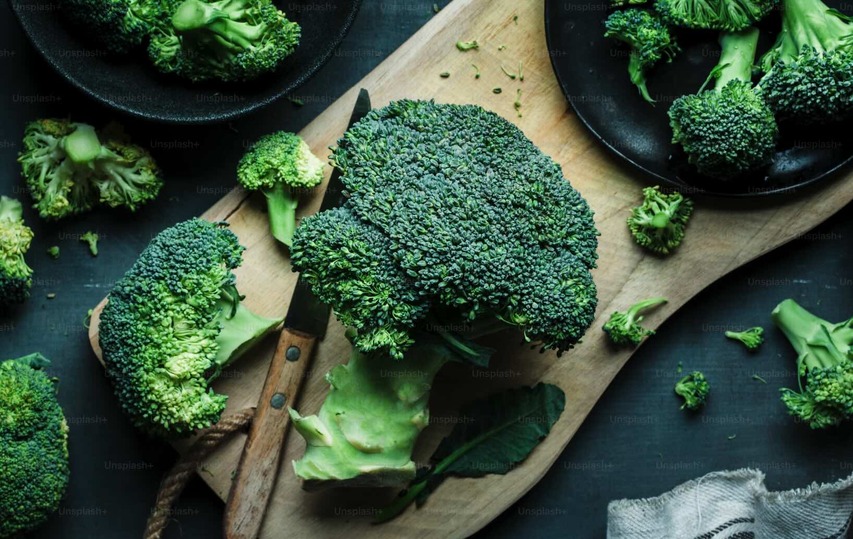PCOS related acne & diet
PCOS and Acne: How Your Diet Can Help
Polycystic Ovary Syndrome (PCOS) is a hormonal condition that affects millions of women worldwide. If you’re dealing with PCOS, you’re probably no stranger to acne—a frustrating symptom that often feels like it has a mind of its own. The good news? What you eat can make a real difference in managing those breakouts. And if you haven’t heard about DIM supplements yet, you’re in for a treat! Let’s dive into how a PCOS-friendly diet (plus a little help from science) can help you get clearer skin.
Why Does PCOS Cause Acne?
PCOS is all about hormonal imbalances. When your androgen levels (like testosterone) spike, your skin’s oil glands go into overdrive, producing more sebum than your pores can handle. This leads to clogged pores and, yep, acne. Combine that with insulin resistance and chronic inflammation—both common with PCOS—and your skin has a lot to deal with.
Your Diet: A Secret Weapon Against PCOS Acne
What you eat matters more than you might think. The right foods can help balance hormones, reduce inflammation, and keep your blood sugar steady—all things your skin will thank you for.
1. Load Up on Fiber
Fiber isn’t just great for digestion; it’s a game-changer for balancing blood sugar and hormones.
- Fruits: Go for berries, apples, and oranges.
- Veggies: Think spinach, broccoli, and Brussels sprouts.
- Legumes: Lentils, chickpeas, and black beans are your friends.
- Whole Grains: Swap white rice for quinoa or oats.
2. Fight Inflammation with Food
Inflammation is one of the big culprits behind PCOS acne. Anti-inflammatory foods can help calm your skin from the inside out.
- Fatty Fish: Salmon and sardines are packed with omega-3s.
- Nuts & Seeds: Almonds and chia seeds are great picks.
- Olive Oil: Drizzle it over salads or use it for cooking.
- Colorful Produce: Load up on blueberries, spinach, and tomatoes.
3. Choose Low-Glycemic Index (GI) Foods
Low-GI foods help keep your blood sugar steady, which is essential for managing PCOS.
- Veggies: Spinach, kale, and zucchini are low-GI champions.
- Whole Grains: Brown rice, barley, and quinoa are smart swaps.
- Fruits: Apples, pears, and berries beat out bananas and pineapples.
4. Embrace Healthy Fats
Healthy fats are essential for hormone production—and they’re super satisfying!
- Avocados: Add them to toast or salads.
- Nuts & Seeds: Sprinkle flaxseeds or almonds on your yogurt.
- Fatty Fish: Another reason to love salmon.
- Olive Oil: Use it as your go-to cooking oil.
5. Balance Hormones with the Right Foods
Certain foods actually help your body balance hormones, which is key for PCOS acne.
- Cruciferous Veggies: Broccoli, cauliflower, and Brussels sprouts help regulate estrogen.
- Flaxseeds: These tiny seeds are big on hormone-balancing benefits.
- Leafy Greens: Spinach and kale are packed with essential nutrients.
6. Foods to Avoid
Not all foods are skin-friendly, especially if you have PCOS.
- Refined Carbs: Say no to white bread and pastries.
- Sugary Drinks: Skip the soda and sweet teas.
- Processed Foods: Ditch the chips and instant noodles.
- Trans Fats: Found in fried and packaged foods—steer clear!
The DIM Supplement Hype: Is It Worth It?
DIM (Diindolylmethane) is a compound found in cruciferous veggies like broccoli and Brussels sprouts. Here’s why it’s buzzing in the PCOS world:
- Balances Hormones: DIM helps your body metabolize estrogen, which can reduce those hormone-triggered breakouts.
- Reduces Inflammation: Less inflammation = happier skin.
- Supports Detox: DIM helps your body flush out excess hormones and toxins.
Want to give DIM a shot? Just make sure to talk to your doctor first to see if it’s the right fit for you. Learn more about DIM supplements.
Tips to Make a PCOS-Friendly Diet Stick
Switching up your diet can feel overwhelming, but it doesn’t have to be. Here’s how to make it work:
- Plan Ahead: Meal prep on weekends to save time during the week.
- Snack Smart: Keep almonds, berries, or baby carrots on hand.
- Cook More: Homemade meals mean you control the ingredients.
- Balance Your Plate: Think protein, healthy fats, and fiber at every meal.
- Stay Hydrated: Drink plenty of water to support your skin and overall health.
Shop
FAQs About PCOS and Acne
Q1. Why does PCOS cause acne?
PCOS leads to hormonal imbalances, especially high androgen levels, which boost oil production and clog pores, resulting in acne.
Q2. Can my diet really help with PCOS acne?
Absolutely! A diet focused on low-GI foods, healthy fats, and anti-inflammatory ingredients can help balance hormones and reduce acne flare-ups.
Q3. What’s so special about DIM supplements?
DIM helps regulate estrogen, reduces inflammation, and supports detoxification, making it a great option for managing hormonal acne.
Q4. Which foods should I avoid with PCOS?
Stay away from refined carbs, sugary drinks, processed snacks, and trans fats—they can all make PCOS symptoms worse.
Q5. How quickly will I see results from dietary changes?
It depends, but many women notice improvements in their skin within a few weeks to a few months of consistent dietary changes.
Final Thoughts
PCOS acne can be tough, but your diet is a powerful tool for managing it. By focusing on nutrient-dense, hormone-balancing foods and considering supplements like DIM, you can take control of your skin and your health. Remember, small, consistent changes add up over time—and your skin will thank you for it!
Ready to get started? Check out our DIM supplements for PCOS acne or learn more about hormonal acne solutions.
To find the right acne treatments for your unique skin, take the free skin assessment by clicking here.




